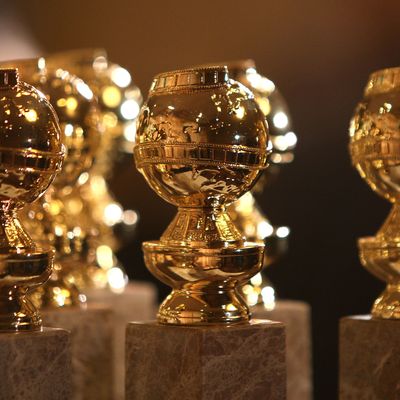
Social distancing just caught up to awards season. Out of mounting COVID-19 concerns that have fundamentally disrupted every aspect of the entertainment industry supply chain, the Hollywood Foreign Press Association announced on Friday sweeping changes to its eligibility rules for the 2021 Golden Globe Awards.
The new normal: temporary suspension of the mandate that a film must screen for HFPA members at a third-party venue (i.e., some kind of theater) in Los Angeles (for a minimum of seven days) in order to qualify for a statuette run. Where the HFPA’s body of 90 international movie journalists has long been accustomed to studio-sponsored private showings of would-be Globe contenders, home viewings of DVD screeners and streaming links will now suffice. Moreover, instead of giving consideration only to movies released in theaters (or via pay-per-view cable or video on demand) before December 31, 2020, the new guidelines open the floor to movies with a planned theatrical release in Los Angeles during that time. The change will tentatively be in effect from March 15 until April 30 — an unusual display of empathy at a time when theaters and screening rooms across the country remain shuttered.
The HFPA’s relaxation of viewing rules arrives just a week removed from the Cannes Film Festival’s postponement from May to early July in response to the coronavirus outbreak — and even more crucially, less than six months ahead of top-tier awards movie incubators such as the Venice and Toronto International Film Festivals, which are almost certain to see their operations impacted or curtailed by international curve-flattening initiatives. (On Friday, TIFF became the first major festival to move online, launching a stay-at-home cinema program featuring streaming movies and proprietary Q&As.) Also on Friday, the Television Academy announced it will be adjusting the voting deadlines and eligibility rules for this year’s Primetime Emmy Awards.
Bowing to concerns by network and streaming executives, TV publicists, and awards campaigners, Television Academy leadership shifted the Emmy entry deadline by four weeks to June 5 (from May 11) and moved its so-called “phase one” voting period to July 2–13 (from its original June 15–29 window). While the Primetime Emmys are still set for broadcast September 20, all For Your Consideration events “whether with a live audience, streaming, or recorded on a viewing platform” have been suspended for the duration of this year’s Emmy season, the academy said.
Although these new measures are intended as real-time responses to a rapidly unfolding, industrywide emergency with no clear timeframe or resolution, their early implementation reflects a belief that the awards-season economy will go back to normal at some point in the near future — specifically, during a summer increasingly devoid of blockbusters — even if that assumption seems more in line with Hollywood–brand magical thinking than any empirical scientific data.
Meanwhile, the fate of the Oscars remains an open-ended proposition. For now, the Academy of Motion Picture Arts and Sciences has given no indication that coronavirus precautions will compel a similar upheaval of time-cherished release and screening rules (with the 93rd annual Oscars scheduled to take place February 28, 2021). For films aimed at Academy Award contention, the organization’s minimum requirement of a seven-day theatrical release at a Los Angeles–area theater remains in place. And according to awards strategists and academy members informally canvassed by Vulture, it is simply too early in the process to predict how COVID-19 may infect entertainment’s most glittering event.
But in a statement earlier this week, the Academy announced that it “is in the process of evaluating all aspects of this uncertain landscape and what changes may need to be made. We are committed to being nimble and forward-thinking as we discuss what is best for the future of the industry and will make further announcements in the coming days.”


